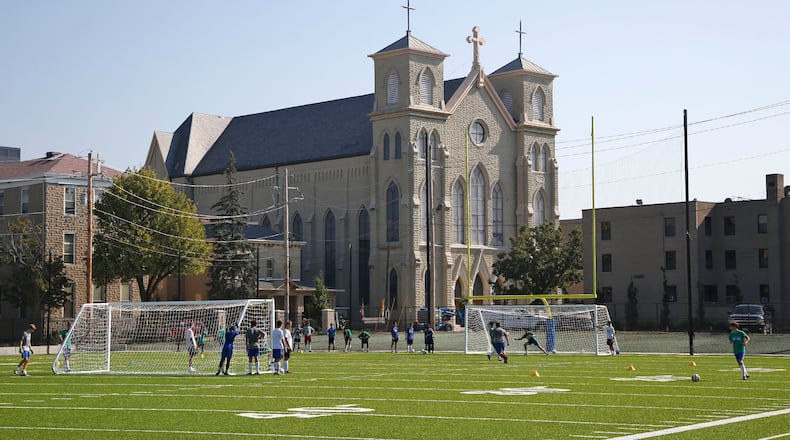Several thousand Dayton-area students attend private schools via vouchers. Carroll High School officials have said roughly 40% of their students use vouchers, and state data shows nearly 3,000 students who live in the Dayton Public Schools geography use vouchers to attend a private school instead.
The lawsuit calls the current program an “existential threat” to public schools. Supporters of the lawsuit say the public tax dollars used to support these scholarships are being taken away from Ohio public schools, with the EdChoice funding to private schools often higher than funding for the public schools the students leave.
Former Ohio Supreme Court Chief Justice and current Columbus City Schools board member Eric Brown said at a press conference Tuesday that the central question of the lawsuit is where the General Assembly, who is funding the school choice voucher system, gets the authority to fund private school vouchers. Columbus schools are part of the lawsuit.
“Funding schools that aren’t for everybody is not the business of the Ohio General Assembly, and it is not the responsibility of Ohio taxpayers to pay for these private schools,” Brown said.
Under current Ohio law, which was updated in 2020, the Ohio Department of Education pays $5,500 for each qualifying EdChoice voucher student in grades K-8 and $7,500 for each EdChoice student in grades 9-12. The lawsuit claims the average state foundation funding allotted to public school districts is about $4,008 per pupil for fiscal year 2022.
“This amount is less than the least expensive EdChoice Voucher,” the lawsuit states.
For some districts included in the lawsuit, the amount of funding per pupil is even less. Columbus City Schools says in the lawsuit the district receives approximately $2,800 per pupil in state foundation funding. Cleveland Heights, a school district in Cuyahoga County, says it receives about $1,100 per pupil.
The lawsuit was filed by the Columbus, Lima, Cleveland Heights, Richmond Heights and Barberton school districts, along with a Cleveland Heights family and the Ohio Coalition for Equity and Adequacy of School Funding. That school funding coalition, often called Ohio E&A, counts as members several Dayton-area school districts, including Dayton, Fairborn, Northmont, Xenia and Jefferson Twp.
Ohio E&A was the organization that sued the state in the 1990s, claiming the entire school funding model was unconstitutional — leading to multiple Supreme Court rulings in Ohio E&A’s favor.
But opponents of the lawsuit, including Ohio Christian Education Network Director Troy McIntosh, said school choice programs benefit parents and students.
“Parents chose these schools for a reason, and it is because they believe they give their children the best chance to flourish as a student,” McIntosh said.
In a joint statement, school choice advocates Greg Lawson of The Buckeye Institute, Eric Frank of School Choice Ohio and Chad Aldis of the Thomas B. Fordham Institute, said the lawsuit was a “sham.”
“Rather than waste taxpayers’ money, backers of this latest attempt to deny Ohio parents any choice in education would serve students better by actually working with families to ensure Ohio’s students are prepared for college, career, and real life,” the trio said.
Ohio’s Republican-dominated state legislature has passed multiple school choice provisions in the past few years, including the most recent funding from H.B. 110.
“This shows the deep disdain these greedy big government elitists have for parents to make decisions that are best for the education of their children. It is shameful and a direct attack on Ohio families,” said John Fortney, communications director for the Ohio Republican Caucus.
Nneka Jackson, a school board member with the Richmond Heights school district in Cuyahoga County, said private school vouchers are making school segregation in Ohio worse, not better.
Before the EdChoice program, about 26% of students in the Richmond Heights Schools were white and 74% were students of color. Today, 97% of the schools are students of color, she said.
About the Author

